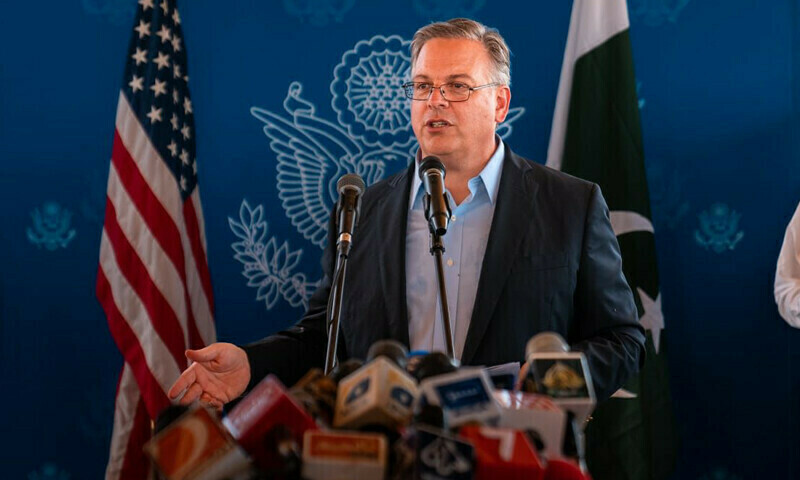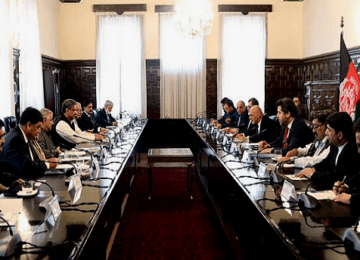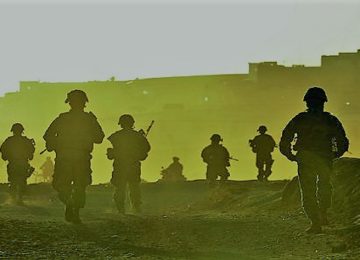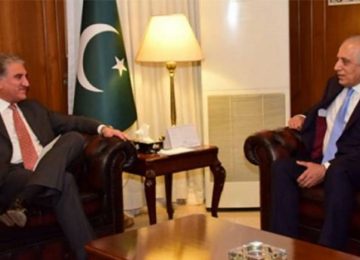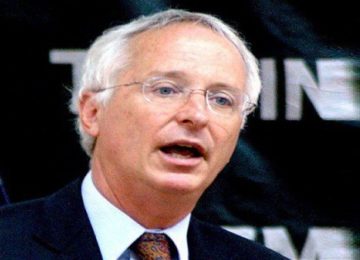Pakistan has seen a surge in refugee influx since the Taliban takeover of Afghanistan. While the displaced Afghans struggle to find an abode , Pakistan keeps its doors open for those in need. Despite its economic and social pressures, it has been hosting over 1.4 million Afghan refugees and 850,000 Afghan Citizen Card holders for four decades while adhering to the highest standards of protection, even during the COVID-19 pandemic. Owing to the unparalleled hospitality of Pakistan, the refugees as well as Afghan Citizen Card holders enjoy free enrollment in government primary schools and access to higher education with generous scholarships, along with bank accounts and numerous livelihood opportunities.
The United States is grateful to Pakistan for graciously sheltering Afghan refugees for more than 40 years, and we are proud to continue our support for this important cause, US Ambassador Donald Blome said on Thursday at a ceremony in Islamabad.
Since 2002, the United States has provided more than $273 million (nearly Rs 62 billion) in humanitarian assistance for Afghan refugees in Pakistan and Pakistani host communities.
In Fiscal Year 2022 alone, the U.S. provided nearly $60 million (more than Rs 13 billion) in assistance to the refugees and their host communities.
This U.S. assistance is increasing school enrollment for Afghan and Pakistani children in Khyber Pakhtunkhwa and Balochistan; improving Pakistani healthcare services and boosting nutrition programs in areas hosting Afghans; promoting livelihood activities for refugees and host communities; improving water, sanitation, and hygiene infrastructure; and supporting recovery from the health and economic effects of the COVID-19 pandemic.
“Thanks to the generous and compassionate support of the American people, UNHCR was on the ground immediately to respond to the devastating floods of 2022 – providing life-saving relief items to Pakistanis and Afghan refugees,” noted UNHCR Representative to Pakistan Noriko Yoshida. “The invaluable support of the United States has also been felt across the entirety of the UNHCR program – from increasing girls’ access to formal and informal education, saving lives through donations of critical equipment in provincial hospitals, and also allowing entrepreneurs to thrive thanks to an increase in vocational and skills training.”
UNICEF Representative in Pakistan Abdullah Fadil added, “Thanks to generous support from the United States, UNICEF has been able to make a positive difference in the lives of Afghan refugees and of the Pakistani host communities living next to them. We have helped prevent and treat children suffering from severe acute malnutrition, establish maternal and neonatal services which help mothers and newborns survive, and provide families with access to safe drinking water and adequate sanitation. We have also supported girls’ and boys’ access to education so that they too can one day become agents of sustainable change within their own communities.”
Since the beginning of 2022, U.S. humanitarian assistance for Afghan refugees and host communities has also improved health infrastructure in refugee-hosting areas of Khyber Pakhtunkhwa and Balochistan. The United States supported UNFPA and UNICEF to conduct renovations to health facilities, including updating labor rooms and purchasing advanced newborn care equipment, furniture, and patient care equipment. In addition, health facilities received solar panels that ensure a continuous electricity supply. With U.S. funding, UNICEF also helped families access essential health, nutrition, water, sanitation, and hygiene services in 70 health facilities, and provided nearly 50,000 mothers and close to 110,000 children with preventative and curative nutrition services.
Pakistan’s Chief Commissioner for Afghan Refugees Saleem Khan said, “We are grateful to the U.S. government for their generous contributions towards the welfare of Afghan refugees in Pakistan and assistance to the host communities.”
6-1-2023



